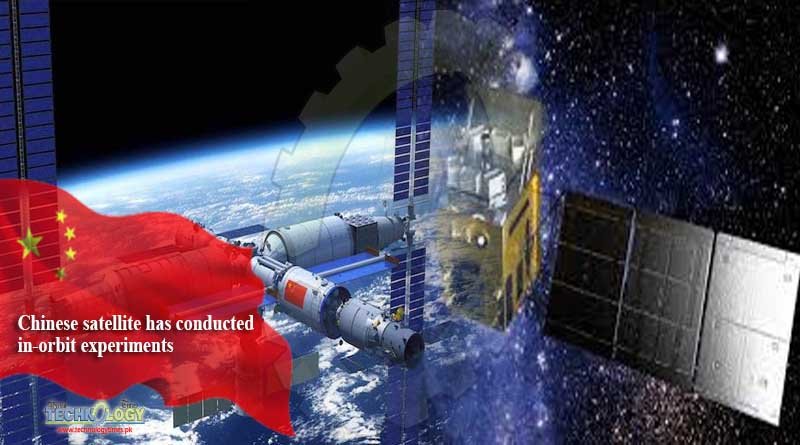A recently-launched Chinese satellite has conducted in-orbit experiments on the key technologies related to space-based gravitational wave detection, the Chinese Academy of Sciences (CAS) announced.
 The satellite, sent into orbit on Aug. 31, is China’s first such kind of satellite, and has completed its first stage tests in in-orbit experiments, laying a solid foundation for future gravitational wave observation in space, said Xiangli Bin, vice president of CAS.
The satellite, sent into orbit on Aug. 31, is China’s first such kind of satellite, and has completed its first stage tests in in-orbit experiments, laying a solid foundation for future gravitational wave observation in space, said Xiangli Bin, vice president of CAS.
“This is the first step of China’s space-based gravitational wave detection. But there is still a long way to go to realize detecting gravitational waves in space. Chinese scientists will continue to contribute Chinese wisdom to the exploration and human progress,” Xiangli said.
The satellite has been named Taiji-1. As a Chinese term for the “supreme ultimate,” Taiji is well-known as the black and white circular symbol representing yin and yang. The pattern of Taiji also resembles a binary star system composed by objects like neutron stars or black holes.
Gravitational waves are “ripples” in space-time caused by some of the most violent and energetic processes in the universe. Albert Einstein predicted the existence of gravitational waves in 1916 in his general theory of relativity.
The strongest gravitational waves are produced by catastrophic events such as colliding black holes, supernovae, coalescing neutron stars or white dwarf stars and possibly even the remnants of gravitational radiation created by the birth of the universe itself.
The first discovery of gravitational waves by the LIGO Collaboration in 2015 has opened a new window to observe the universe and encouraged scientists worldwide to accelerate their research.
CAS has announced the research program “Taiji” that will study gravitational waves from the merging of binary black holes and other celestial bodies.
Unlike the LIGO research conducted from a ground-based observatory, Taiji will conduct space-based detection on the gravitational waves with lower frequencies to observe celestial bodies with greater mass or located farther away in the universe, said Wu Yueliang, chief scientist of the Taiji program and an academician of CAS.
However, the gravitational wave signals from those celestial bodies are extremely weak, posing great challenges for detection. Scientists need to break through the limit of current precise measurement and control technology, Wu said.
Taiji-1 aims to test the key technologies such as high-precision and ultra-stable laser interferometer, gravitational reference sensor, ultra-high precision drag-free control and ultra-stable and ultra-static satellite platform, according to Wu.